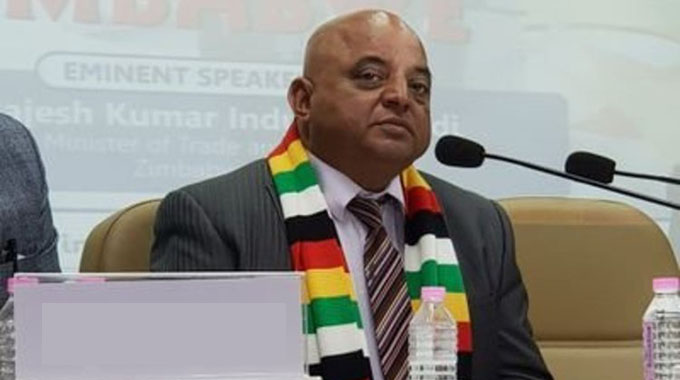Govt ready to support private sector: Modi

Michael Tome and Kumbirai Tarusarira Business Reporters
Government will always stand ready to support the private sector in improving productivity, job creation and improved incomes in the country, Industry and Commerce Deputy Minister Raj Modi has said.
He said this while on tour of an Art Corporation Limited division, Chloride Zimbabwe, which is seeking government’s intervention on regulation of exports of scrap and old batteries.
The country has been experiencing massive exports of old batteries for recycling in neighbouring countries like Mozambique, South Africa and Botswana yet they are a critical raw material required by local companies as a source of lead for making new batteries.
Some of the old batteries have found their way into Asia and Europe.
Lead from old batteries is re-melted and refined for the production of new batteries hence they are a significant part of lead supply to Chloride Zimbabwe.
In an interview on the sidelines of the tour, Minister Modi told The Herald Business that Chloride was well on course with Government’s initiatives as it has made strides in curbing the import bill through new investment which has enabled the company to improve capacity utilisation.
“Chloride Zimbabwe has vindicated Government’s import management programme by investing in new machinery during the past three years valued at US$5 million.
“As the company is increasing its production capacity and output as well as increasing its local market share, (it is) partly helping in reducing the country’s import bill,” said Modi.
Considering the role being played by the company in complementing Government’s efforts Minister Modi indicated that he had come to tour the company to have an on-site appreciation of challenges being encountered by the company.
“We have come to find out the problems they are facing and how best as the Government we can help because their contribution towards employment and exports is huge, they are exporting about 30 percent of their products to neighbouring countries.
“And the other good thing is that they are making use of 70 percent local materials which is also serving our much needed foreign currency.
“So we thought as the Government we need to come and find out their problems and how best we can help them to reach 100 percent capacity,” he added.
Chloride general manager Kudzai Pasipanodya said that the company was operating at a limited capacity and would double its capacity if the government intervenes by restricting illegal exports of scrap batteries.
“Chloride is currently operating at 60 percent capacity, producing about 30 000 batteries and we are planning to increase to 50 000 per month.
“The reason why we are not performing at full capacity is because of foreign currency shortages., We are importing most of the raw materials like sodium nitrate and plastic raisings.
“Battery scrap is the only available local material that we have.”
He said, “Scrap battery exports are illegal and there is actually a law that forbids lead or scrap batteries to be exported out of the country. Lead is a hazardous material and one should have a license to handle lead and acid.
“The major issue is to enforce the law that is in place to ensure that the illegal exports do not happen.”











Comments